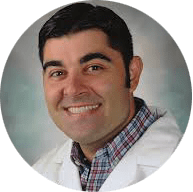 More than one third of patients will have chest pain associated with SVT causing providers to order troponins and other cardiac enzymes. Elevated troponins are not pathognomonic for CAD/ACS and could represent other etiologies such as sepsis, subarachnoid hemorrhage, and pulmonary embolism. Also, subsequent coronary angiography is not necessary for risk stratification in all cases. SVT causes a rapid heart rate, which is well documented as a cause for modest troponin elevation secondary to cardiac stretch, poor diastolic perfusion, and/or coronary artery vasospasm.
More than one third of patients will have chest pain associated with SVT causing providers to order troponins and other cardiac enzymes. Elevated troponins are not pathognomonic for CAD/ACS and could represent other etiologies such as sepsis, subarachnoid hemorrhage, and pulmonary embolism. Also, subsequent coronary angiography is not necessary for risk stratification in all cases. SVT causes a rapid heart rate, which is well documented as a cause for modest troponin elevation secondary to cardiac stretch, poor diastolic perfusion, and/or coronary artery vasospasm.
Do elevated troponins during SVT predict the presence of CAD?
- 12 – 48% of patients have elevated troponins after SVT 1,2
- Having a known history of CAD is more likely to lead to troponin elevation than not having a history of CAD (62% vs 43%)2
- There is no difference in the diagnosis of CAD compared to patients with negative troponins2
- And if that is not enough, here are 6 studies looking at patients with SVT followed by cardiac angiography.
| Author and Date | Study Type | Key Results (Angiography) |
| Kanjwal et al (2008) | Case Series (7 patients) | All with NORMAL coronary arteries |
| Miranda et al (2006) | Case Study | NORMAL coronary arteries |
| Yeo et al (2006) | Case series (3 patients) | All with NORMAL coronary arteries |
| Redfearn et al (2005) | Retrospective Cohort (3 patients) | All with NORMAL coronary arteries |
| Zellweger et al (2003) | Case Series (4 patients) | 2 patients with NORMAL coronary arteries on angiography and 2 patients with normal myocardial perfusion scans |
| Bakshi et al (2002) | Prospective Cohort (3 patients) | All with NORMAL coronary arteries |
| Table modified from Carley S et al Best BETs 2005 |
-
Major Limitations:
- Few patients (21 patients total)
- Average age of patients between 40 – 45 (Younger patient population)
- Fewer ACS risk factors in these patients (Less likely to have CAD/ACS)
- Conclusion: Elevated troponins in younger patients with minimal risk factors for CAD/ACS in the setting of SVT do NOT predict CAD
Does an elevated troponin with SVT have any clinical prognostic significance? 3
In general, compared to the prior studies, patients in this study were older and had more comorbidities. The authors defined clinically significant outcomes as death, MI, or rehospitalization for a cardiac reason during a 1 year follow up after the SVT event. Several conclusions were made which included:
- Patients with more comorbidities (risk factors for ACS) are more likely to have elevated troponins with SVT
- In comparing elevated versus non-elevated troponin I levels post-SVT, the incidence of adverse outcomes was:
- Cardiac rehospitalization: 37.9% versus 6.1%
- Myocardial infarction: 6.9% versus 0% (Not Statistically Significant)
- Death: 20.7% versus 10.2% (Not Statistically Significant)
-
Major Limitations:
- Retrospective Review
- 70% of patients did not have stress test or angiography for follow up
- Unclear if other etiologies such as pulmonary embolism, sepsis, or subarachnoid hemorrhage were cause of elevated troponins
- Conclusion: Patients with elevated troponins after SVT have INCREASED cardiac rehospitalization over the next year
Clinical Bottom Line:
A prospective study needs to be performed to determine the predictive value of elevated troponins in patients with SVT. A more appropriate approach based on the evidence should be:
- Low risk, prior SVT, feels good after conversion, then NO CARDIAC ENZYMES and outpatient f/u
- Intermediate risk, then DO get CARDIAC ENZYMES; If neg, outpatient follow up but if positive consider admission.
- High risk, older age, or known history of ACS, then DO CARDIAC ENZYMES and admit.
Author information
The post Supraventricular Tachycardia (SVT): Are Troponins Necessary? appeared first on ALiEM.

